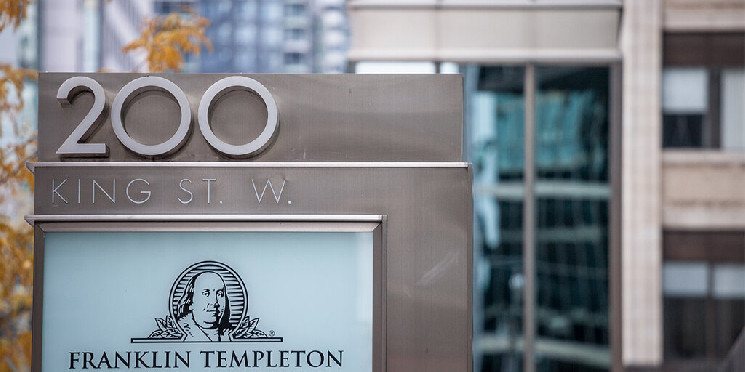“In the past year, Bitcoin innovation and development has seen a renaissance in activity,” Franklin Templeton Digital Assets wrote. “Positive momentum in innovations is primarily driven through Bitcoin NFTs, known as Ordinals, new fungible token starts such as BRC-20 and Runes, Bitcoin Layer 2s, and other Bitcoin DeFi primitives.”
The firm recapped the acceleration in activity around Bitcoin NFTs after Casey Rodarmor released the Ordinal protocol last year. In 2022, Rodarmor developed the “ordinal theory” concept that assigns a specific number to each Satoshi, the lowest denomination of a Bitcoin, on the network.
The Rise of Bitcoin Ordinals pic.twitter.com/nKLwwlMM4d
— Franklin Templeton Digital Assets (@FTI_DA) April 3, 2024
“Our digital assets research team regularly surveys the entire digital asset ecosystem,” a Franklin Templeton spokesperson told Decrypt. “This piece in particular was inspired by the recent surge in trading volume and market cap of Ordinals relative to NFTs on other networks.”
Franklin Templeton Digital Assets laid out the surge of Ordinal collections in the $NFT market in volume and market capitalization, highlighting NodeMonkes, Runestone, Bitcoin Puppets, Ordinal Maxi Biz, and Bitmap—terms that likely have never before appeared in one of their prospectuses.

“Bitcoin Ordinals have seen a surge in trading volume over the past several months,” Franklin Templeton Digital Assets said. “This is reflected in an increase in dominance starting in December of 2023 when it surpassed ETH in trading volume.”
The digital assets team at Franklin Templeton has been a vocal proponent of cryptocurrency and blockchain technology on social media, and was described as going “full degen” in January after the U.S. Securities and Exchange Commission approved the first round of Bitcoin ETFs, including the Franklin Bitcoin ETF (EZBC).
“Franklin Templeton has been very progressive when it comes to digital assets, and their venture arm has been investing in Ordinals infrastructure startups behind the scenes,” Runestone project contributor and pseudonymous $NFT historian Leonidas told Decrypt on Twitter. “It doesn’t surprise me at all that Runestone is on the radar of their digital asset team.
“Runestone dropped only three weeks ago and just today became the third largest $NFT collection by market cap across all blockchains,” he added.
pic.twitter.com/nfDroxSzJS
— Franklin Templeton Digital Assets (@FTI_DA) March 28, 2024
Not wasting any time after its Bitcoin ETF was on the market, Franklin Templeton turned its attention to Ethereum and Solana. In February, Franklin Templeton filed a proposal with the SEC for a spot Ethereum ETF.
The reaction to the bullish tweet from Franklin Templeton Digital Assets was met with enthusiasm by the Ordinals community.
🫡🫡🫡🫡
— Magic Eden on Bitcoin 🟧 (@MEonBTC) April 3, 2024
“Ordinals, Ordinals, & Ordinals,” one account tweeted in response.
$NFT archaeologist Adam McBride responded with the “Ladies and Gentlemen, we got him” meme drawn from the United States capture of Saddam Hussein.
Last week, Magic Eden co-founder and Chief Operating Officer Z Yin said the upcoming Rune protocol—a new fungible token standard launched by Casey Rodarmor during the Bitcoin halving later this month—will “supercharge the Bitcoin ecosystem.”
"We think Runes is going to supercharge the Bitcoin ecosystem even further, opening up a new wave of builders and asset types previously only possible on other layer-1 chains,” Yin told Decrypt. “It is a no-brainer for us to double down on this ecosystem by adding Runes to our existing Ordinals marketplace, which has already hit $1 billion in volume in 2024 alone."
 decrypt.co
decrypt.co
